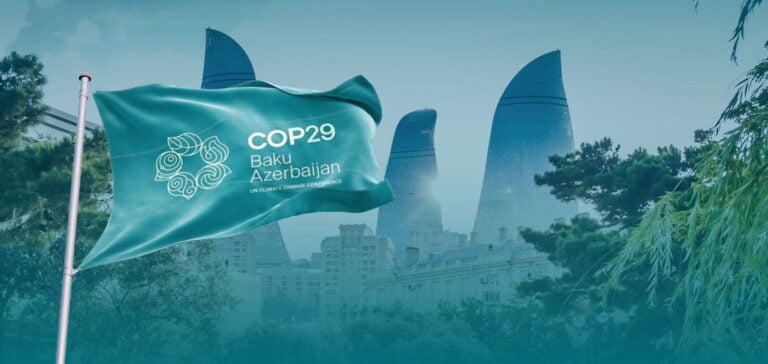The commitments made during COP28 in Dubai to gradually reduce global reliance on fossil fuels are struggling to materialize. With COP29 approaching in Azerbaijan, many observers are concerned about the lack of tangible progress. This year’s climate conference focuses on North-South financial assistance to support developing countries facing the consequences of climate change. However, the gradual phasing out of fossil fuels, which remains a core environmental issue, seems to be taking a back seat.
One Year After Dubai: Disappointing Progress
In 2023, at COP28 in Dubai, an unprecedented commitment was made to initiate a global transition to more sustainable energy sources. However, according to several diplomats and experts, inertia remains, particularly among major economic powers, which continue to expand their oil and gas production. CO₂ emissions, the main contributor to climate change, continue to rise, fueling impatience among nations most threatened by climate change, such as small island states.
Katrine Petersen, a member of the think tank E3G, highlights the need to maintain pressure to prevent recent climate gains from being erased. She emphasizes that “leaders lack political leadership on certain key points,” lamenting that the debate around oil has lost momentum in current discussions.
Political and Economic Resistance
Azerbaijan’s role as the host of COP29, and an important oil producer, raises questions. Some observers fear that the country may deliberately hinder discussions to protect its oil interests, an accusation firmly rejected by the Azerbaijani government. Toiata Uili, coordinator of the Alliance of Small Island States (AOSIS), states that his organization is ensuring that large nations honor their 2023 commitments, despite the resistance shown by several oil-producing states.
Azerbaijani representative Ialtchine Rafiev acknowledges that some countries seek “clear next steps” regarding the gradual abandonment of fossil fuels. However, behind the scenes, the push to slow any significant progress comes primarily from oil producers, reluctant to intensify their environmental commitments. A Western diplomat, speaking on condition of anonymity, reveals that some oil-producing countries feel they already committed too much at COP28, reinforcing their resistance to new initiatives.
An Incomplete Energy Transition
Despite this resistance, there is noticeable progress in renewable energy. The International Energy Agency (IEA) recently announced that investments in clean technologies, particularly in solar and wind energy, now surpass fossil fuel investments. According to IEA projections, half of the world’s electricity could come from low-carbon sources by 2030.
However, Dave Jones, an expert at the think tank Ember, warns that the rapid growth of renewables is insufficient to offset the global increase in energy demand, limiting the actual impact on CO₂ emissions reduction. This contradiction reflects the current dilemma: although renewable energy is expanding, its growth is hampered by persistent fossil fuel demand in many parts of the world.
Expectations of Civil Society
Civil society, represented by NGOs such as 350.org and Oil Change, calls out developed countries that continue to finance fossil fuel extraction projects. Andreas Sieber, from 350.org, asserts that “climate commitments cannot be reduced to hollow words.” This sentiment is shared by many activists, who accuse the leaders of the COP-hosting countries from 2023 to 2025 – the United Arab Emirates, Azerbaijan, and Brazil – of increasing hydrocarbon production while advocating for ecological transition.
A Tense COP29 Ahead
Expectations are high for COP29, where countries worldwide must submit strengthened climate plans to the UN. However, the persistence of oil and gas exploration projects in several countries casts doubt on the sincerity of commitments made at previous conferences. While Papua New Guinea, vulnerable to climate disasters, has announced it will boycott COP29, other nations are publicly expressing their frustration.
The summit, scheduled in Baku, raises concerns about the international community’s ability to converge on concrete and ambitious solutions to address the climate emergency. The pressure on leaders is at its peak, as the future of the commitments made in Dubai remains uncertain in the face of persistent economic interests tied to fossil fuels.






















